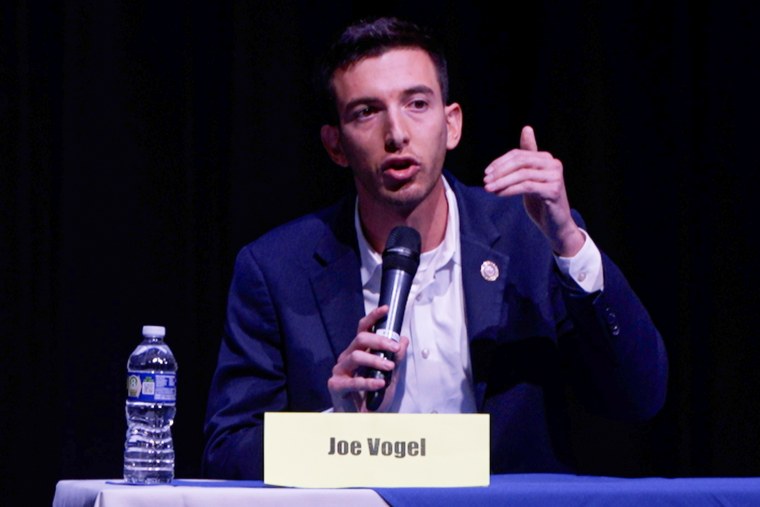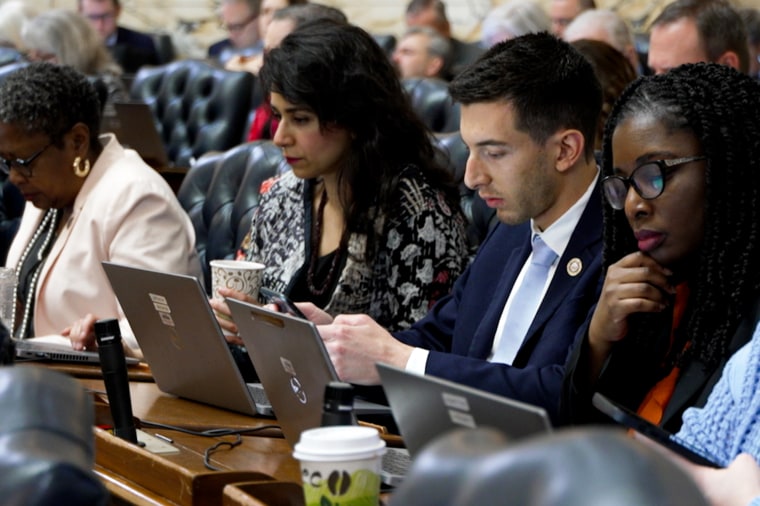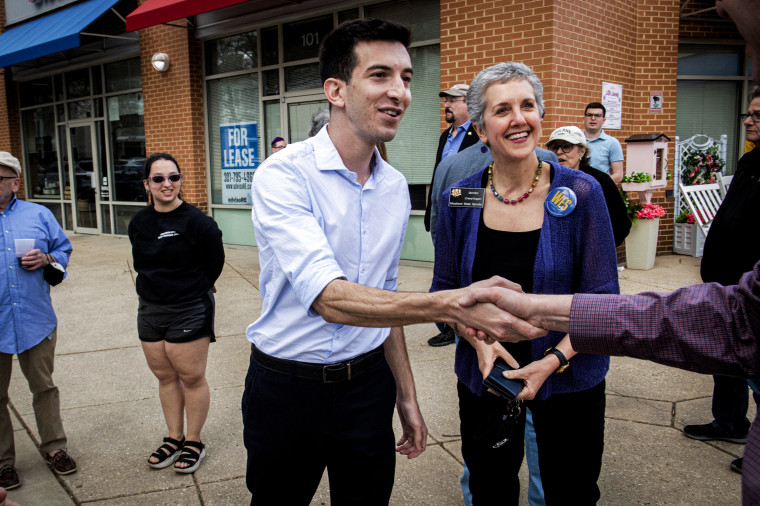Inside a Gen Z campaign to shake up Congress

In an election year partially defined by Gen Z’s exhaustion with politics, Joe Vogel is energized by it.
At 27 years old, the Democrat became the youngest Maryland state delegate in history. He won his legislative seat in 2022, replacing a 16-year incumbent who retired. Now, Vogel has his eyes set on Capitol Hill and is running a campaign to fill Maryland’s open 6th Congressional District. Democratic Rep. David Trone currently holds the seat but is running for Senate this year.
The median age of lawmakers in the House of Representatives is 57.9, and Baby Boomers still represent the largest share (45%) of the House by generation, according to Pew Research.
Right now, Democratic Rep. Maxwell Frost is the only member of Gen Z in Congress, representing a district in Central Florida.
“I’m glad that we have someone from our generation speaking up for us, but we need more folks to come join them,” Vogel said.
After winning endorsements from Sen. Cory Booker, the Maryland State Education Association and more, Vogel’s next hurdle will be the May 14 Maryland primary for the Democratic nomination in the competitive district.
It’s a crowded 16-candidate race on the Democratic side, pitting Vogel against people like Hagerstown Mayor Tekesha Martinez, Montgomery County council member Laurie-Anne Sayles and April McClain Delaney, a former official with the Department of Commerce.

Some of Vogel’s opponents and critics often comment on his age and lack of career experience. One local article referenced Vogel appearing to “resemble a teenager” on the Maryland state House floor.
“I don’t think I look that young, but I, you know, I think the reality is that comments like that really are unnecessary,” Vogel said.
“We’ve outraised folks who are much older than I am, right?” he continued. “We’ve outworked folks who are much older than I am. The reality is, folks can say what they want about, you know, how I look or how old or young I am. I want folks to focus on the issues that we’re fighting for.”
If Vogel were to make it to Congress, he says his unique background as a Gen Z immigrant from Uruguay, a member of the LGBTQ+ community and his Jewish faith would provide a unique perspective for the House of Representatives.
“The reality is that we’re running against that idea from the status quo that you have to wait your turn. The idea that ‘politics as usual’ is what got us here in the first place, right?” he said.
Vogel’s campaign has highlighted the issues of gun violence, mental health, addressing the climate crisis and the fentanyl epidemic as top priorities.

Since being elected to the Maryland state House, Vogel has introduced legislation to allow mental health professionals working in Maryland public schools to receive up to $30,000 of student debt relief. He also co-sponsored a bill to allow students to take tele-health appointments during school hours and proposed a mental health advisory committee.
But despite being a congressional hopeful with over $600,000 in campaign money raised, according to the FEC, Vogel is one of the millions of borrowers who are paying off student loan debt. He connects the two to each other because he doesn’t have personal money to fall back on to finance his campaign, like many who run for Congress.
“I’m sitting on $40,000 of student loan debt. I don’t have the money to loan myself $1 million or $2 million to run a campaign,” Vogel said, adding: “I want someone in Congress who understands what it’s like to be a young person in today’s economy who understands what it’s like to have student debt.”
Vogel’s apartment is a clear representation of the cost of running a congressional campaign at 27 years old.
In a building above his campaign headquarters in Gaithersburg, Maryland, his one-bedroom apartment is modest. White empty walls, plastic trash cans and a flimsy futon from Target fill a space that resembles what most 20-something’s dorms or first apartments look like.
“I think it’s a reflection of how I spend my time. I spend my time working, I spend time, you know, in the Legislature getting things done,” Vogel said.
Although the 2022 midterm elections featured high turnout by young voters, some level of political burnout has also settled in.

In a recent national NBC News poll, which asked voters to measure their interest in the 2024 election on a 1-10 scale, only 27% of voters 18-29 years old answered a “9” or “10,” compared to 65% of all respondents.
Vogel’s message to young voters is to not be complacent.
“Give us a chance to prove that the government can still work. Help us turn that page and elect a new generation of leaders focused on solving these problems,” Vogel said. “Help us elect someone that understands from personal experiences and feels that urgency to address these challenges.”
“We have real challenges before us and we can’t just check out,” he continued.







